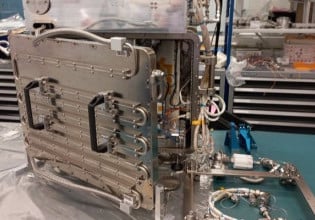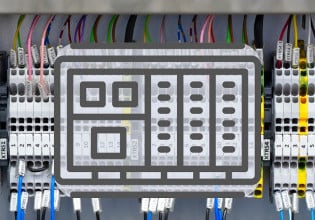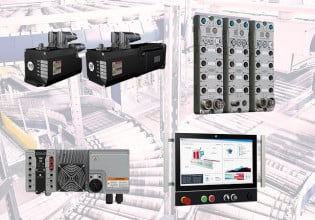M
Hi guys,
I have just uploaded to the cvs a module to interact with cif cards.
I tested it with the card Hilscher was kind enough to lend me, and OMRON Devicenet digital I/O.
I have also uploaded a demo for anybody who happens to have these cards.
********************
Although we are still far from having a working IEC compiler, I feel we should make a release of the plc as it is.
What I would like to see before making a release:
1 - a tcl demo. This already exists in the demo/basic directory,
just needs re-organizing into an independent basic_tcl directory.
2 - get the modbus modules to compile, i.e. include the function
that was in the old io.c file into the modbus source files.
3 - a modbus demo explaining how to configure the module.
4 - Debug the filtering blocks of the dsp module.
5 - have the dio48 module use the new generic io library
6 - a demo directory for the dio48 module
7 - A user manual, probably in html format.
8 - a demo directory for the il compiler (e.g. implement the chaser
in il).
9 - A top level makefile that will make each module, and install
the libraries and executables into apropriate directories,
i.e. get all the executables into a single directory (probably
with sub-directories for io moduls, logic modules, utilities, ...)
10 - A big demo, with some nice graphics, and realistic processes...
Is anybody willing to help out with any of the above?
It may seem like a lot, but actually most should not take too long.
Cheers,
Mario.
--
----------------------------------------------------------------------------
Mario J. R. de Sousa
[email protected]
----------------------------------------------------------------------------
The box said it requires Windows 95 or better, so I installed Linux
_______________________________________________
LinuxPLC mailing list
[email protected]
http://linuxplc.org/mailman/listinfo/linuxplc
I have just uploaded to the cvs a module to interact with cif cards.
I tested it with the card Hilscher was kind enough to lend me, and OMRON Devicenet digital I/O.
I have also uploaded a demo for anybody who happens to have these cards.
********************
Although we are still far from having a working IEC compiler, I feel we should make a release of the plc as it is.
What I would like to see before making a release:
1 - a tcl demo. This already exists in the demo/basic directory,
just needs re-organizing into an independent basic_tcl directory.
2 - get the modbus modules to compile, i.e. include the function
that was in the old io.c file into the modbus source files.
3 - a modbus demo explaining how to configure the module.
4 - Debug the filtering blocks of the dsp module.
5 - have the dio48 module use the new generic io library
6 - a demo directory for the dio48 module
7 - A user manual, probably in html format.
8 - a demo directory for the il compiler (e.g. implement the chaser
in il).
9 - A top level makefile that will make each module, and install
the libraries and executables into apropriate directories,
i.e. get all the executables into a single directory (probably
with sub-directories for io moduls, logic modules, utilities, ...)
10 - A big demo, with some nice graphics, and realistic processes...
Is anybody willing to help out with any of the above?
It may seem like a lot, but actually most should not take too long.
Cheers,
Mario.
--
----------------------------------------------------------------------------
Mario J. R. de Sousa
[email protected]
----------------------------------------------------------------------------
The box said it requires Windows 95 or better, so I installed Linux
_______________________________________________
LinuxPLC mailing list
[email protected]
http://linuxplc.org/mailman/listinfo/linuxplc






